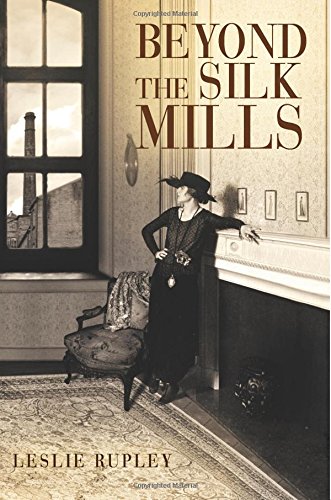Beyond the Silk Mills
The life story of feisty, sensitive Sophie, the main character in Leslie Rupley’s richly textured novel Beyond the Silk Mills, is closely bracketed between the two towering psychological forces of her father Meyer, who was a weaver in the Polish Jewish ghetto of Lodz, and her mother Emma, who yearns to rise above the grubby immigrant world of Paterson, New Jersey and enter the higher echelons of American society in the early years of the twentieth century. Navigating between her father’s fiery idealism and her mother’s impatient ambitions (“God in Heaven!” Emma yells at Meyer at one point, “What did you do? You and your friends brought Lodz to Paterson. Why couldn’t you leave the workers’ movement back in Poland?”), Sophie must work out a life for herself against the backdrop of the rise of modern-style feminism and labor unionism. Rupley does a skilled job delineating that life, showing us the growth of her personality (and, touchingly, her love life) and moving the whole narrative across a few turbulent decades of American history.
As an immigrant novel, Beyond the Silk Mills is a readable, standout achievement.










